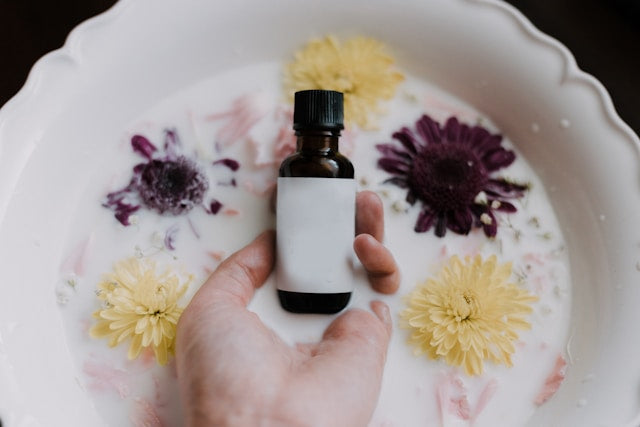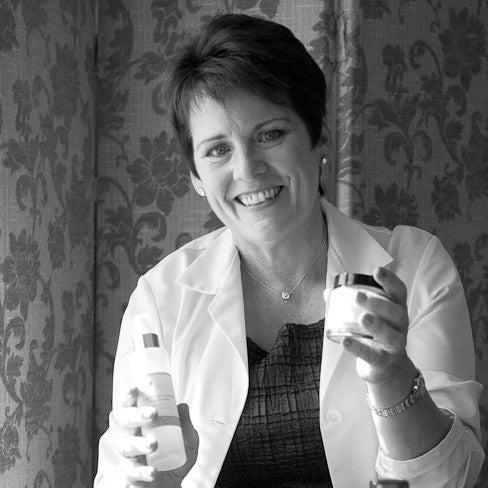
A Beginner's Guide to Aromatherapy

Welcome to the world of essential oils, where nature’s finest offerings are encapsulated in small bottles, ready to enhance your well-being. With the potential to promote relaxation, invigorate the senses, and improve the ambiance of your home, aromatherapy serves as a valuable resource for all. While the variety of essential oils can be overwhelming to newcomers, this comprehensive guide will equip you with the foundational knowledge needed to explore aromatherapy confidently. Join us in embracing the benefits of essential oils and elevate your everyday experiences with informed choices.

Why Try Aromatherapy?
Aromatherapy is one of the most popular forms of complementary medicine, known for its affordability, pleasant experience, and safe, non-invasive nature. It is an effective way to enhance your health and well-being, offering a variety of benefits for both emotional and physical concerns. For example, calming scents like lavender and chamomile can significantly influence mood and alleviate stress, while peppermint oil may relieve head tension, and eucalyptus supports respiratory health. This holistic approach acknowledges the interconnectedness of mind, body, and spirit, promoting overall wellness. By exploring different essential oils, you can discover which ones best meet your personal health needs, ultimately contributing to a balanced and healthier lifestyle.
What Are Essential Oils?
Essential oils are concentrated plant extracts from —flowers, leaves, bark, or roots—capturing their scent and essence. that capture the natural aroma and therapeutic properties of plants. These natural oils are typically obtained through processes such as distillation and cold pressing. They are used for a range of complementary health and wellness purposes as well as natural perfumery.
How do essential oils work?
As a trade association dedicated to the education and promotion of essential oils, we aim to empower you with essential knowledge about how these remarkable substances function within our bodies.
Essential oils are concentrated plant extracts from flowers, leaves, grasses, woods, roots, and resins. They possess unique chemical properties that allow them to interact with our biological systems in various ways. When inhaled, essential oil molecules travel through the olfactory system to the brain, where they can significantly influence mood, stress levels, and emotional well-being.
In addition to inhalation, essential oils can be absorbed through the skin, particularly when mixed with a carrier oil. This method allows the beneficial compounds to enter the bloodstream and interact with various physiological processes. Whether used for their calming effects, pain relief, or overall wellness enhancement, essential oils have a diverse range of potential benefits that contribute to both emotional and physical well-being.
By understanding how essential oils work, you can better appreciate their role in ealth and well-being. We encourage you to explore the many possibilities these oils offer and to always choose products from reputable sources endorsed by our association.
Choosing Your First Oils
Here are six of the most popular introductory oils renowned for their benefits to health and well-being:

• Lavender: The ultimate relaxation oil, it is highly effective for promoting restful sleep and alleviating nervous tension.
• Geranium: With an exquisite scent, this essential oil is celebrated for its balancing effects on emotions and its calming effect on the body.
• Peppermint: A refreshing and invigorating oil, it is recommended as a stimulant, enhancing focus and concentration. Additionally, it is recognized for its ability to relieve head tension and digestive discomfort.
• Tea Tree: Revered for its potent antibacterial and antifungal qualities, tea tree oil is an invaluable support to the immune system and a popular choice for maintaining blemish-free skin.
• Lemon: Ideal for energizing the mind and invigorating the senses, its fresh zesty aroma can also lift the mood.
• Eucalyptus: With its affinity for the respiratory system, it is very popular during the cold and allergy season. It is also considered to be an effective therapeutic treatment to rejuvenate tired or uncomfortable joints and muscles.
By gaining a comprehensive understanding of the unique properties and benefits of various essential oils, consumers can make informed choices that significantly enhance their overall well-being. A 10ml bottle, typically priced between £5 and £15, offers exceptional value and lasts a considerable amount of time. We strongly recommend purchasing from suppliers who are members of the Aromatherapy Trade Council (ATC), as they guarantee the quality, authenticity, and efficacy of their products. This ensures that you are acquiring genuine essential oils, free from synthetic additives or inferior alternatives.
Equipment needed for aromatherapy at home

Minimal equipment is required:
- A Diffuser: Ceramic diffusers with a candle are available from £5.00 (Take care to ensure that it has a deep, preferably removable dish to accommodate at least 50ml of water.) Electric diffusers are from £12.00. These diffuse the essential oil into the atmosphere so that it can be inhaled.
- Carrier/base Oil: from £5.00 in which the essential oils are diluted prior to application to the skin. Note baby oil is not suitable as it is usually synthetic and unlike plant based oil will not “carry” the essential oil into the body via the skin.
- Dark Glass Bottle: £1-£2 for a 10ml roller— required if you wish to store blends that you have made.
Your First Steps
Mistakes to avoid
- Ultra cheap oils which are generally diluted or “stretched” with synthetic non therapeutic material.
- False medicinal claims: See the ATC FAQ for more information
A Beginner Blend
For relaxation:
- 3 drops lavender (calm)
- 4 drops geranium (balance)
- 4 drops orange sweet (mood boost)
- 1 drop frankincense (soothe)
All blended into 30ml of carrier oil or dropped into the water bowl of a diffuser
How do I use essential Oils?
There are many ways to incorporate essential oils into everyday life, but the following are the most common. Note the amount of essential oil recommended would normally be from one oil or the sum of up to three different oils.

- Inhalation: Using an essential oil diffuser (either candle or electric) to disperse the oil into the air (Up to 1.5% i.e. 18 drops per 50ml of water) or placing a few drops on a tissue (up to 4 drops) and inhaling the fragrance. Clay or wood diffuser discs can also be used.
- Topical Application: Diluted in a carrier oil, lotion or cream and applying to the skin as a massage or a beauty treatment. (up to 1.5% concentration i.e. up to 6 drops in a tablespoonful (15ml)
- Shower gel (Up to 1.5% i.e. up to 6 drops in a tablespoon of fragrance free gel or salt)
- Bath gel: This depends on the amount of water so approximately up to 10 drops ideally diluted in a tablespoonful of neutral bath oil, dairy or plant milk or vodka
- Salt: Depending on the amount of water, up to 10 drops dispersed into a tablespoon of neutral bath gel or vodka and then mixed with a cup of sea, table or espom salt.
- Roll-Ons: Diluted essential oils applied to the pulse points from a roller bottle. 1% i.e. up to 6 drops in 25ml of carrier oil
- Room sprays: Essential oils dispersed into water (with a specialist dispersant or alcohol e.g. vodka) up to 2% i.e. 25 drops per 50ml
- Pillow sprays: Essential oils dispersed into water (with a specialist dispersant or alcohol e.g. vodka) up to 1.5% i.e. 17 drops in 50ml
Important note: Some essential stimulating oils have a particularly strong aroma so the dilutions would be lower to avoid an overwhelming fragrance
Safety
Essential oils are very safe when purchased from a reputable source and used in accordance with the directions. The following safety precautions apply
- Essential oils are highly concentrated and should be diluted with a carrier oil before applying to the skin.
- Conduct a patch test before using a new essential oil, especially if you have sensitive skin.
- If you are pregnant or breastfeeding, consult with a healthcare provider before use.
- Avoid contact with eyes.
- Do not take internally.
- Avoid mucous membranes/sensitive areas of the body
- If you have a medical condition, consult a healthcare professional before using essential oils.
- Consult a healthcare provider if you are taking prescribed medication .
- Keep out of direct sunlight after treatment with citrus oils to avoid the risk of skin photosensitivity
- Keep out of reach of children and pets
- Store in a sealed dark bottle (glass or aluminium) and away from extreme heat
- Use high-quality, pure essential oils from reputable sources such as those registered with the ATC to avoid additives or contaminants that could be harmful.
Conclusion
By understanding the distinctive properties and benefits of various essential oils, individuals can make informed choices that significantly enhance their overall health and well-being. Aromatherapy serves as a valuable solution for everyday wellness concerns, effectively addressing issues such as stress, anxiety, and physical discomfort. A 10ml bottle of essential oil typically ranges from £5 to £15 and can last for an extended period when stored properly.
We strongly recommend sourcing your essential oils from Aromatherapy Trade Council (ATC) member suppliers, to ensure that you are purchasing 100% pure essential oils of therapeutic quality from sustainable and fair trade sources. This guarantees that you are receiving high-quality, authentic oils rather than synthetic alternatives. Embrace aromatherapy as a practical, natural approach to improving your everyday health and well-being.


